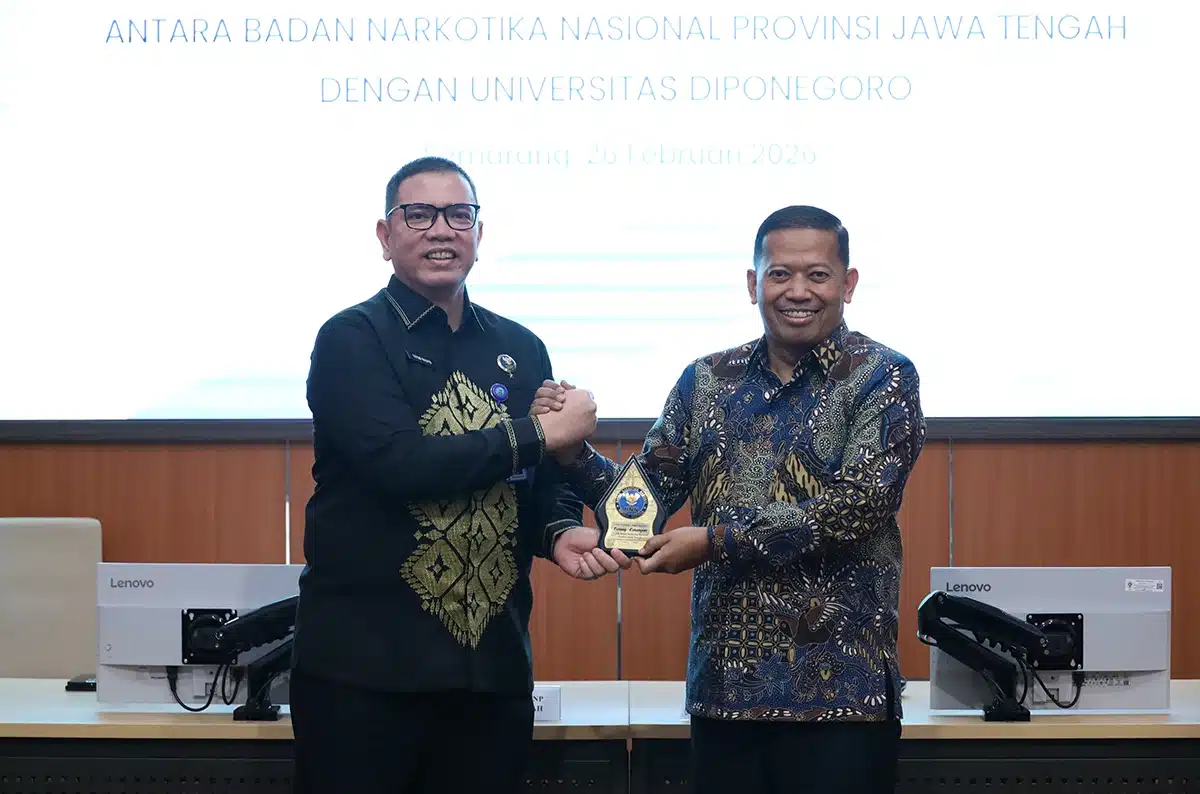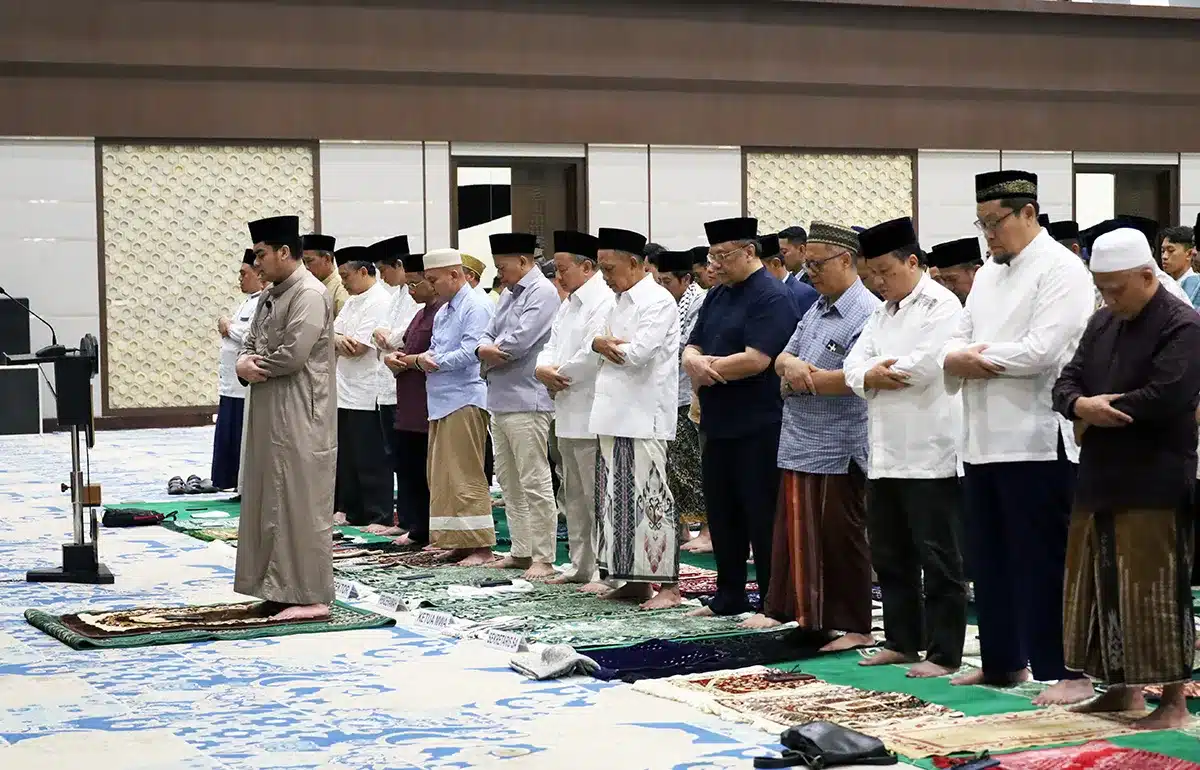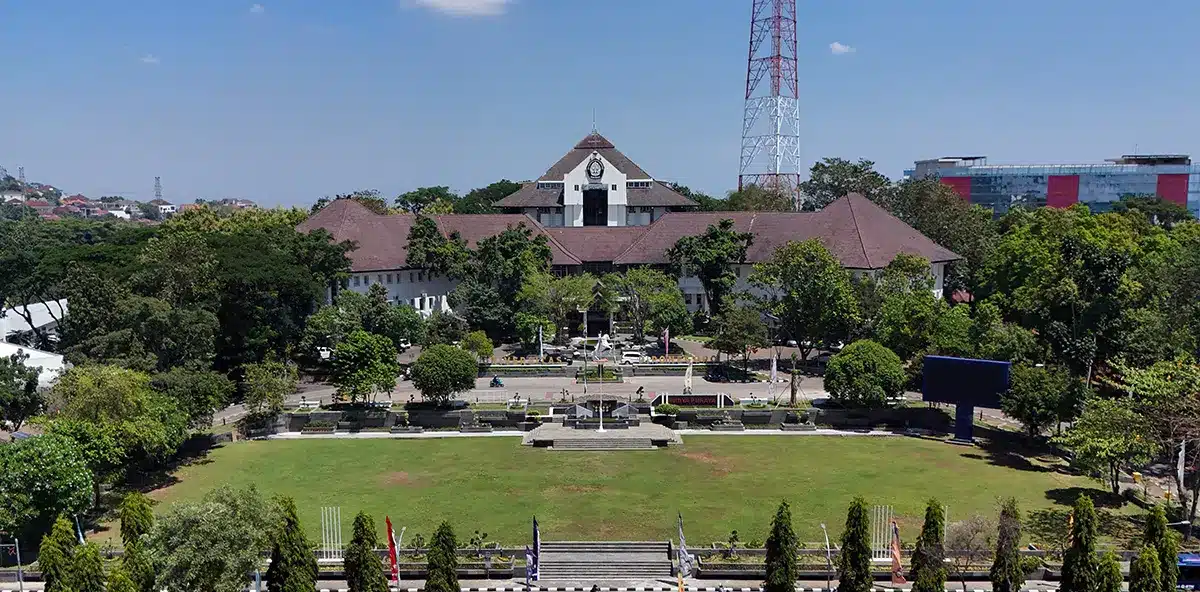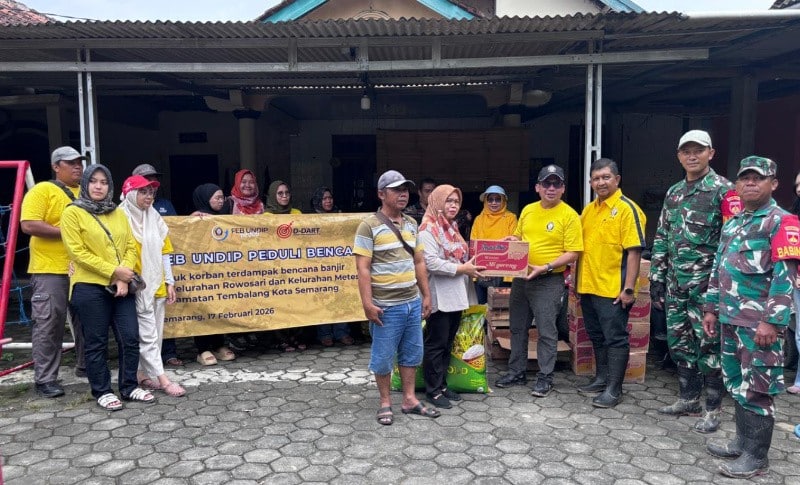The government has committed that by 2060 Indonesia can realize Net Zero Emission and is currently preparing a road map to achieve Net Zero Emission. To achieve the realization of Net Zero Emission, it is necessary to develop New Renewable Energy (EBT) as a form of energy transition to Net Zero Emission.
In order to develop New Renewable Energy (EBT), the Faculty of Engineering, Diponegoro University (FT Undip) in collaboration with PT. Indonesia Power has held a National Seminar with the theme “Development of New Renewable Energy as a Form of Energy Transition towards Net Zero Emission in Indonesia’s Future Development” on Wednesday, July 20, 2022 at 08.15 WIB at the Engineering Hall, 5th Floor of Dean Building FT Undip Tembalang.
This event was attended by the Dean of FT, Deputy Dean of FT, Heads of Departments and Heads of Study Programs within the FT Undip, President Director of PT. Indonesia Power and its staff, and students participating in national seminars.
The national seminar moderated by the Lecturer of the Department of Environmental Engineering Undip, Dr. Ika Bagus Priyambada, S.T., M.Eng.Sc., invited three speakers, including the President Director of PT. Indonesia Power, Dr. Ir. H. M. Ahsin Sidqi, M.M., IPU; Professor of Environmental Science Undip, Prof. Sudharto P. Hadi, MES, Ph.D.; and Lecturer of the Department of Electrical Engineering/Head of Master of Energy Undip, Dr. Ir. Jaka Windarta, M.T., IPU, ASEAN Eng.
The Dean of FT Undip Prof. Ir. Mochamad Agung Wibowo, M.M., M.Sc., Ph.D. when opening the event revealed that this national seminar is a form of collaboration and synergy between universities and industry, namely PT. Indonesia Power. “With the MBKM program, the Tri Dharma of Higher Education must be added to the presence of networking, collaboration, or synergy. This national seminar is a starting point for us to collaborate and synergize with each other.” said Prof. Great.
According to Prof. Agung, with the MBKM program, the internship program in industry needs more attention. “We have to give more meaning to the internship program in the industry. Now the sources of knowledge are everywhere. With the MBKM program, the driver is you, so students must create a career road map from an early age.” he said.
Meanwhile, the President Director of PT. Indonesia Power, Dr. Ir. H. M. Ahsin Sidqi, M.M., IPU., in his presentation entitled “Strategy of PT. Indonesia Power in Transitioning Energy and New Renewable Energy Development towards Zero Emission Carbon Neutral 2060”, revealed that the Government has committed to developing the mix of New Renewable Energy by 23% by 2025 and reducing Greenhouse Gases by 29% by 2030 and PT. Indonesia Power participated in carrying it out.
The latest Electricity Supply Business Plan (RUPTL) in 2021 is more dominant in EBT development up to 56%. PLN has conveyed that the carbon neutral (CZN) program for power plants by 2060 is no longer using fossil bases. PT. Indonesia Power as a subsidiary of PLN has made a program of energy transformation and transition through innovation and green booster with a dediselization program for all regions based on local energy, co-firing substitution of coal with biomass.
Furthermore, Ahsin Sidqi explained that PT. Indonesia Power also supports the Government’s commitment to Net Zero Emission. “In the framework of the G-20 meeting in November 2022, PT. Indonesia Power has prepared several New Renewable Energy programs and showcases to show the commitment of the Government of the Republic of Indonesia to the world.” he explained.
Universities and the academic community can observe and take a strategic role in world policies to reduce carbon emissions and the development of renewable energy. With the New Renewable Energy development process, Ahsin Sidqi invited Undip to actively participate in his research. “Later Undip’s researchers can work with us.I believe Undip is very ready.” he concluded.
Professor of Environmental Science Undip, Prof. Sudharto P. Hadi, MES, Ph.D., in his presentation of his material entitled “Developing Sustainable and Equitable Energy”, explained that the development of EBT will face a problem, one of them is from the economic side. It will be difficult to achieve because it is still relatively expensive. However if we continue to use fossil fuels, the social and environmental impacts will also be very expensive.
Prof. Sudharto added that there are two ways to deal with energy problems. “Facing the energy problem, there are two things that can be done, the first is developing New Renewable Energy, and the second is implementing energy efficiency.” he added. On this occasion, Prof. Sudharto also provided suggestions and input on the New Renewable Energy Bill that is being made by the Government.
In addition, the Lecturer of the Department of Electrical Engineering / Head of the Undip’s Master of Energy Study Program, Dr. Ir. Jaka Windarta, M.T., IPU, ASEAN Eng., in his presentation explained that the use of fossil energy which has been the world’s focus has been proven to contribute to accelerating the rate of global warming.
“A special report from the Intergovernmental Panel on Climate Change (IPCC) in 2018 even explicitly stated that it was necessary to carry out a rapid and large energy transformation to prevent an increase in the earth’s temperature at 1.5C. To limit this, it is necessary to reduce annual emissions. The energy sector has an important role in reducing these emissions.” explained Jaka Windarta.
According to Jaka Windarta, there are many New Renewable Energy potentials that can be developed in Indonesia, including Geothermal Power Plants (PLTP), Hydro Power Plants (PLTA), Micro Hydro Power Plants (PLTMH), Solar Power Plants, Wind Power Plants (PLTB), and Bioenergy Power Plant.
In achieving the Net Zero Emission target, the Government is implementing five main principles, namely increasing the use of renewable energy, reducing fossil energy, using electric vehicles in the transportation sector, increasing the use of electricity in households and industries, and utilizing carbon capture and storage (CCS).
“In terms of energy, there are several policies that can be taken to support Net Zero Emission, namely reducing energy intensity (energy efficiency), New Renewable Energy, and transitioning to electric vehicles. Multi-stakeholder commitment and collaboration is needed to plan the development of Indonesia’s Net Zero Emission.” concluded Jaka Windarta.









